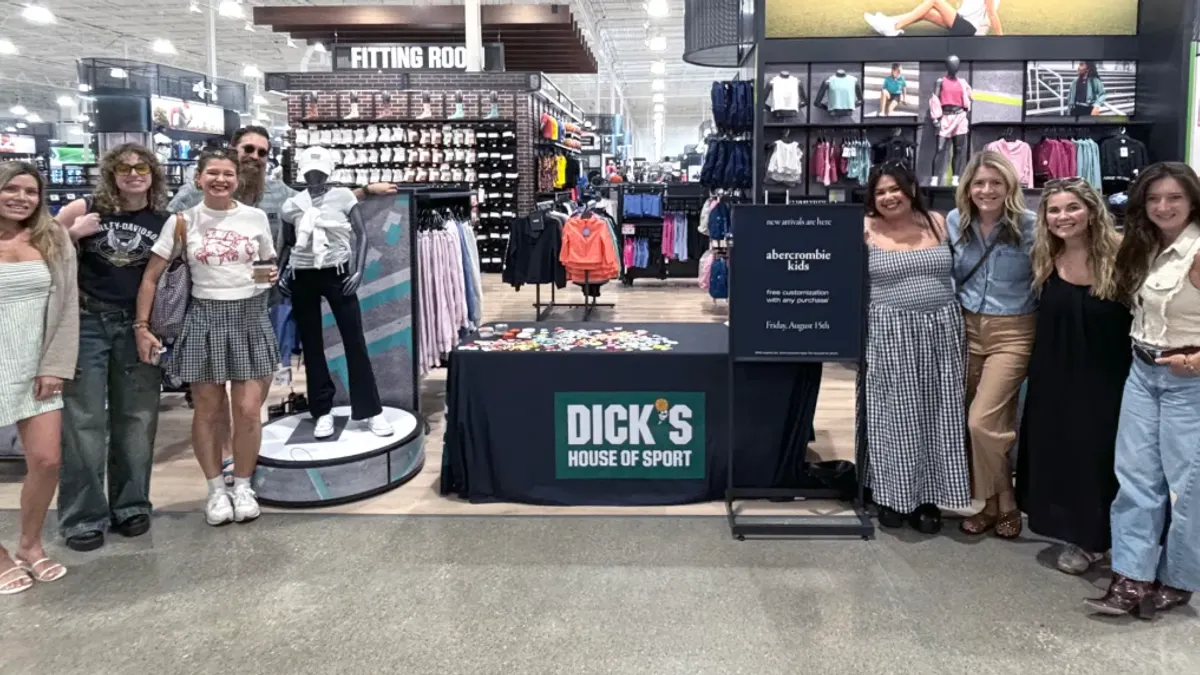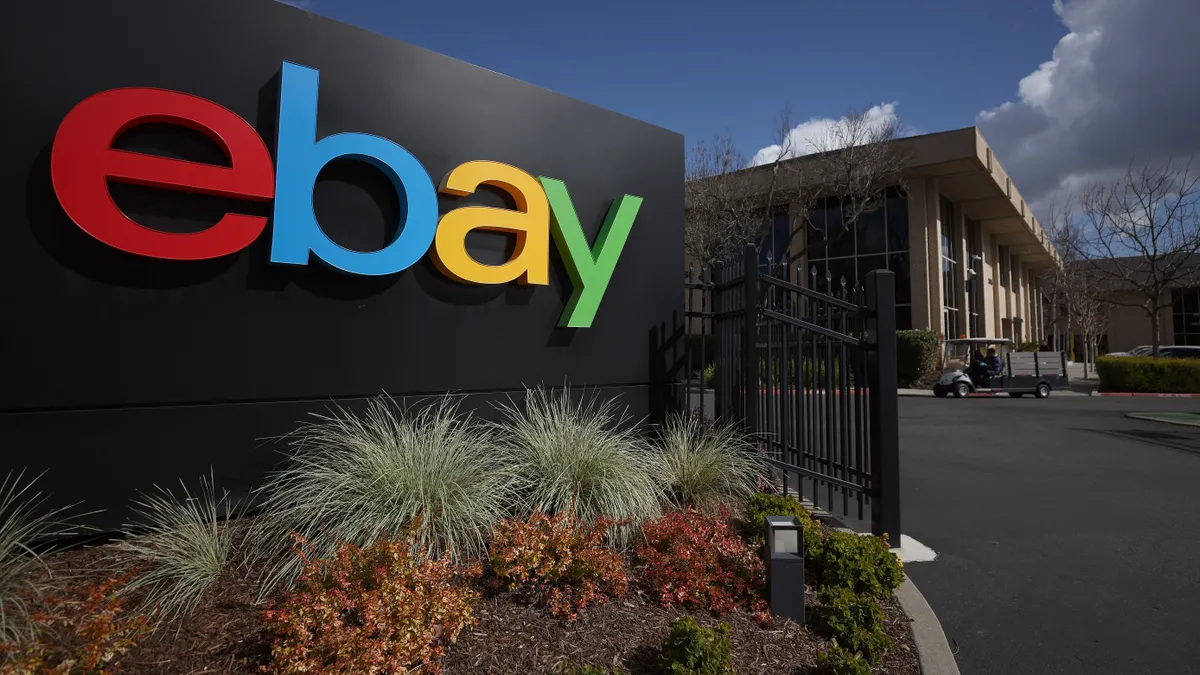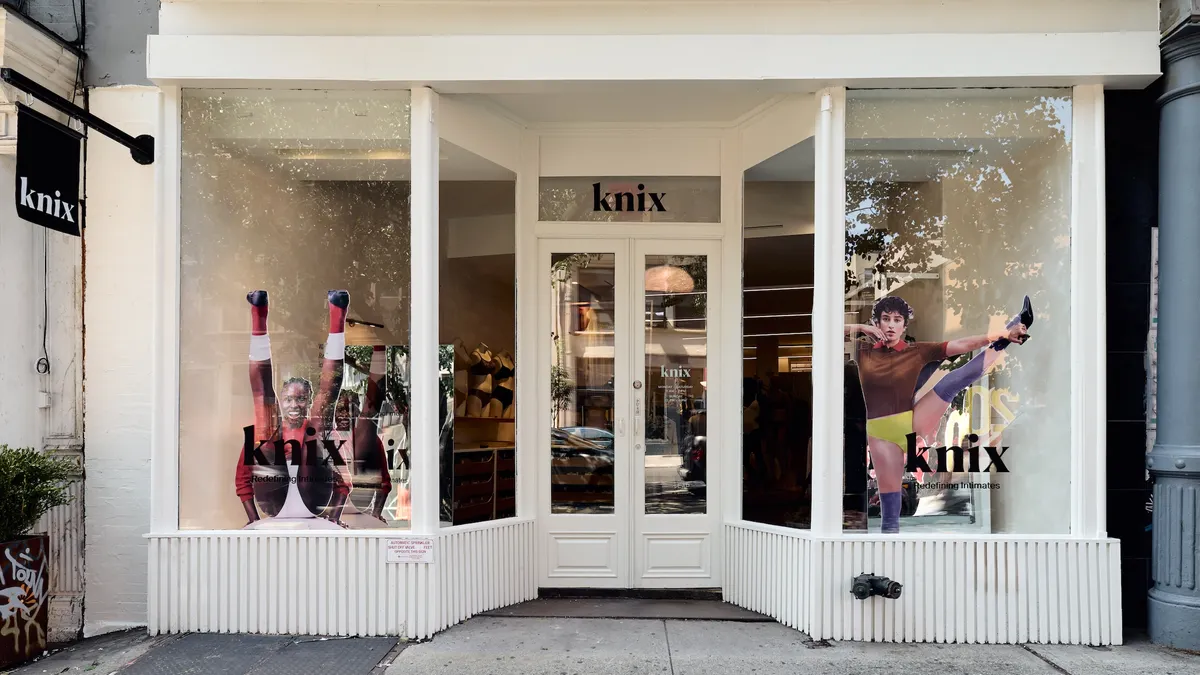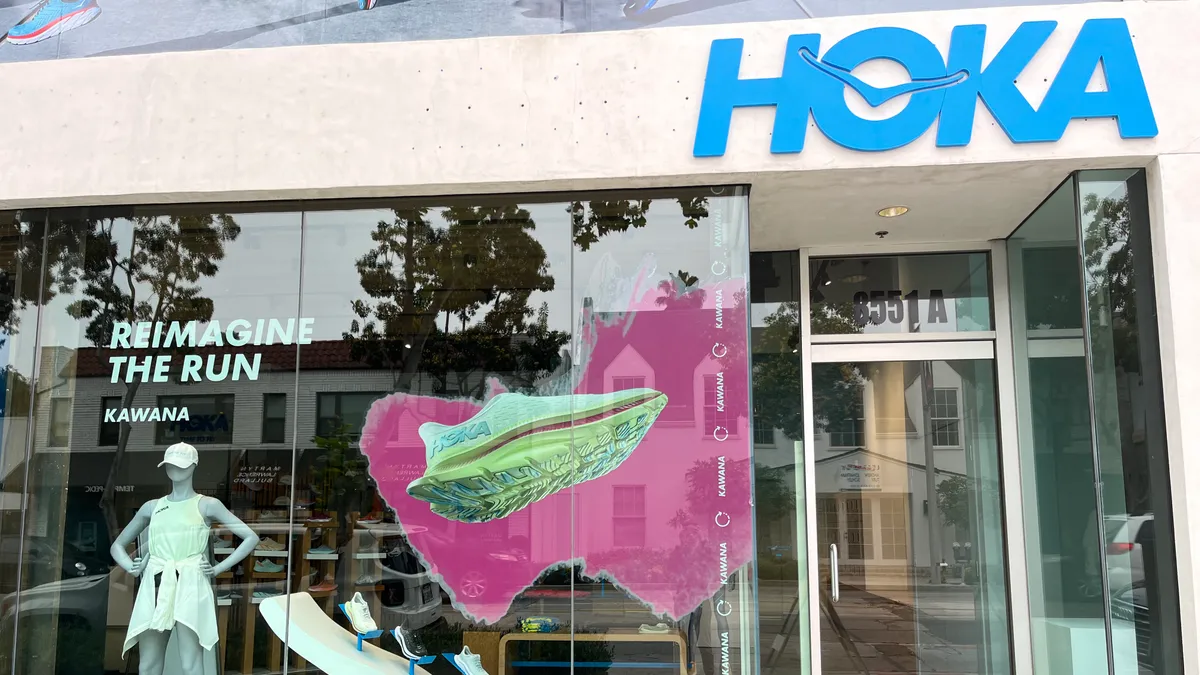In an age where digitization dominates almost every aspect of life, selling pens and paper might seem like a thing of the past.
However, physical methods of communicating aren’t entirely obsolete. The world of stationery continues to exist despite some bigger names in the industry — such as Papyrus and Paper Source — closing some stores or filing for bankruptcy.
But plenty of small retailers are dedicated to selling something that even artificial intelligence can’t quite mimic: the joy of physical stationery.
This specialized space goes beyond the printer paper or standard back-to-school binders customers might purchase at a big-box store. Nowadays, the product category can encompass a variety of items in the office or desk supplies world, from customized greeting cards your grandmother has to high-quality paper types and pens from Japan. Many countries outside the U.S., such as Germany and Japan, have highly sought-after stationery products.
Colorful washi tapes, customized day planners, quirky sticky note pads and more are sold to customers who seem dedicated to keeping analog forms of communication and writing a thing of the present. Cashing in on this trend are a variety of independent founders across the country who share a passion for the craft.
The big names
Some of the well-known retailers and brands in the specialty stationery space have included Paper Source, Papier and Papyrus, though many have endured challenges in recent years.
Papyrus shuttered all of its U.S. stores in 2020, with company leadership citing the “current challenges of the retail industry” at the time. The company still maintains an e-commerce site and also lists retailers such as Target, Kroger, and Albertsons Companies on its retail locations webpage.
Additionally, Paper Source filed for Chapter 11 bankruptcy in 2021. Originally founded by Susan Lindstrom in 1983, Paper Source was acquired by Barnes & Noble owner Elliott Investment Management through bankruptcy. Paper Source still operates its own retail stores, per its store locator webpage, in addition to selling through Barnes & Noble.
More recently, parent company Barnes & Noble filed a Worker Adjustment and Retraining Notification with the state of Illinois in January for the permanent closure of a distribution center, impacting 107 employees.
In a statement to Retail Dive, Paper Source said they had worked in the space for ten years.
“Sadly the lease of the building comes to an end at the start of next year,” the stationery brand said via email. “As a retailer whose business is especially concentrated into the Holiday period, we have to make the move in the summer to be able to meet the seasonality of the year-end.”
Reliance on holiday gifting occasions may be a core vulnerability for some of the larger legacy brands in the stationery space, according to emailed commentary from Devadas Pattathil, CEO of inventory management company OnePint.ai.
“In contrast, indie shops have leaned into hyper-personalization, community engagement, and unique curation,” Pattathil said. “They foster direct relationships with customers through workshops, limited-edition collaborations, and locally sourced products."
Meanwhile, the London-based stationery brand Papier in 2023 marked its first U.S. wholesale partnership through a deal with Anthropologie.
“DTC remains the majority of our sales and traffic but we’ve seen wholesale grow rapidly over the past few years since we launched it, and it is now a meaningful part of our business that we’re excited to grow further,” Papier founder and CEO Taymoor Atighetchi said in emailed responses to Retail Dive.
The brand’s planners and diaries are among its best sellers, per Atighetchi. Papier is also seeing success with recipe journals and photobooks. Despite being founded in the United Kingdom, the brand said the majority of the company’s customers are based in the U.S.
“We have built a brand that resonates with the modern consumer and how they think about analog in an increasingly digital world,” Papier said. “We know that there’s a growing desire to ‘switch off’ from screen time and digital distractions - Papier’s products offer offline experiences that are both beautiful and tactile.”
Despite challenges in the niche market, some smaller stationery brands and retailers in the U.S. are thriving, capitalizing on consumer trends promoting self-expression and wellness. Some are even trying to bring a more positive reputation to American-manufactured products in an industry dominated by international brands.
Small business, big growth
“It just continued to grow and grow,” Amy Rutherford said of the stationery offerings she was selling at her store Red Barn Mercantile in Alexandria, Virginia. That growth led her to open another shop in the area called Penny Post, which is dedicated to this product category and has distinct branding from her other ventures.
Rutherford noted that some customer interest in stationery, like with journaling, seems to be tied to mental health practices — taking time to reflect away from screens — and a form of self-expression, as many of the stationery brands she sells create visually unique, sometimes even political, goods.

California-based stationery brand and retailer Shorthand has also found a way to operate more than one store in the same city without cannibalizing sales. Founder and owner Rosanna Kvernmo in an interview with Retail Dive said she is even exploring opening a third location.
Kvernmo began working in stationery in college by creating a small greeting card line. Shorthand, the company that has since developed, has created a larger product line — its most popular product being a notebook. Now, Shorthand also sells products from other brands that make pens, envelopes and more.
The store experience seems central to the stationery world, according to Kvernmo, which is filled with customers who care about how a paper type feels and how a pen performs. There is an active print shop within one of Shorthand’s locations allowing customers to see products being made, and Kvernmo even keeps the Shorthand email signup old school — there’s a pen and paper in store for customers to write down their contact information.
“The internet can be so overwhelming for shopping and when you go into a store … it's like three versions of the same thing and they've already been vetted for quality ostensibly,” Kvernmo said of the ability to finely curate selections in-person so customers aren’t paralyzed by choice.
The presence of stationery in the U.S. may not be new, but several business owners for this story noted that some countries — particularly Japan — have had a long-standing stationery fandom.
“In both Germany and Japan, there has been a concerted effort to preserve domestic manufacturing,” St. Louis Art Supply Product Director Carson Monetti told Retail Dive via email. “These are historically export economies and there is a broad consensus around building the capacity to make things well. Governments and businesses have worked together for generations to refine industrial processes, train workers, and build out complex supply chains. We have not done that work in the U.S., so we've lost the expertise.”
“There are no U.S. alternatives to many of the products we source overseas, so we will have to pass on the price increases to customers."

Carson Monetti
St. Louis Art Supply Product Director
Many small stores in the U.S. will seek out specific products to retail from these countries, but even still it is sometimes hard to find a wide range of stationery specifications in the U.S. without going abroad. Quality is particularly high with stationery products made in Japan, Monetti added.
“There is a ton of local competition, which keeps prices low,” Monetti said. “Japanese consumers use way more of these products than we do, and they are much more discerning about pens and paper. All of this adds up to an environment where the stationery giants are still rolling out new products every season, setting and following trends, and trying to outdo one another. It's really refreshing for an American merchant because so many of our domestic brands are in suspended animation.”
The introduction of tariffs announced by President Donald Trump on Wednesday could present issues for many stationery companies in the U.S. — and not just for those who import finished products.
“There are no U.S. alternatives to many of the products we source overseas, so we will have to pass on the price increases to customers,” Monetti said. “We are also a small American manufacturer — we make watercolors and inks here in St. Louis under our Federal Color brand. Even that part of our business will have to raise prices if the tariffs are implemented, because the packaging and raw materials come from all over the world.”
When Suann Song — a graphic designer by trade — created the stationery brand Appointed through a Kickstarter, she set out to create the perfect notebook — one manufactured in the U.S. with the type of quality consumers find abroad. She saw a need in the market for gender-neutral, timeless stationery that seemed harder to get in the U.S.
About a decade later, the company’s top seller is still that notebook, though the brand’s offerings have expanded greatly since. Appointed operated a Washington, D.C., store for many years until just this February, when the brand shuttered the location (which served as an all-in-one design studio, office, retail and manufacturing space) to instead increase its production capacity with a new facility in New York state.
The move has been about a year in the making, Song told Retail Dive, and will allow for more frequent product releases and restocks.
Maintaining Made in America requirements hasn’t always been easy, but Song has been dedicated to meeting its required standards since the Appointed brand was founded.
“It was almost more from a practical standpoint,” Song told Retail Dive. “I could quality control, I could do smaller runs. You could have faster turnaround when you're sourcing stateside.”
However, sometimes this has meant working harder to create certain products. Another popular product from Appointed is the brand’s task planner, which is released annually with tabs for every month. Song said that the company’s employees used to arduously collate the pages all by hand.
“If you really look at the planner market, there's very few or no planners in the U.S. made with tabs just because the machinery to make them is pretty extensive,” she noted.
Thankfully, Song was able to find a small company in Oregon that made a limited number of machines each year that could meet the specifications Appointed needed to make this process more efficient.
“I took a small business loan out for that. It was like a $50,000 purchase,” Song said. “And that changed everything for us … When someone gets a good planner, they habitually will buy it and then they'll tell their friends about it, so that's nice because you just see the organic growth year after year.”






















